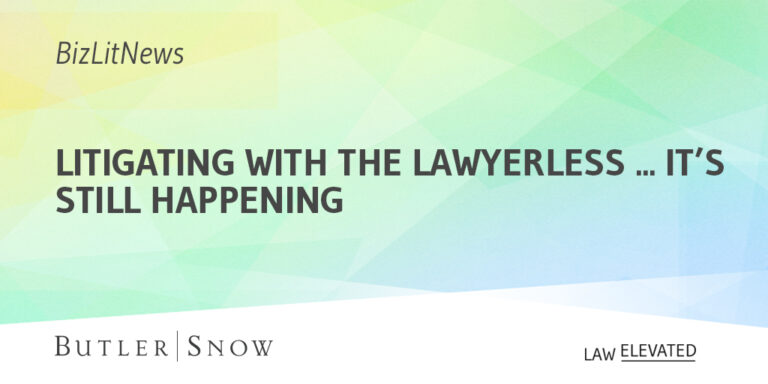Previously, I have written about appellate decisions considering the issues presented by pro se litigants and their non-compliance with applicable trial and appellate court rules. (See July 9, 2018 blog and September 18, 2018 blog). The continuing challenge for the practitioner is to effectively advocate for the represented client, without appearing to be unfair or unreasonable, while guiding the court to avoid any temptation to “cut corners” which may allow the DIY “lawyering” by the pro se party to be turned into an unfair advantage – perhaps even putting the court into the position of formulating the legal arguments that the DIY litigant should have made.
In Ray v. Willoughby, decided February 11, 2020, the Tennessee Court of Appeals (Case No. W2019-00646-COA-R3-CV) was again faced with an appellant’s failure to comply with the Tennessee Rules of Appellate Procedure (and the rules of the Appellate Court) in his brief. Despite recognizing the noncompliance with the rules concerning the brief, the Court decided the case on the merits. (Decision limited by Tenn. Ct. App. R.10.)
The Court overlooked the brief’s failures, to “give pro se litigants who are untrained in the law a certain amount of leeway in drafting their pleadings and briefs.” It appears that the Court found “good cause” to exercise discretion in suspending strict application of the rules and to consider the pro se appellant’s requests for reversal of a judgment arising out of a failed partnership. This leniency resulted from the fact that the technical record was less than 100 pages. The appellant sought reversal of a decision in a bench trial as not being supported by the evidence.
But, there was a procedural deficiency in the appeal which the Court refused to overlook.
The DIY litigant failed to prepare, in accord with Tennessee Rule of Appellate Procedure 24, a record conveying a fair, accurate, and complete account of the evidence at trial. Thus, the Court could not evaluate the evidence.
[T]o demonstrate that evidence preponderates against the judgment of the trial court, “the appellant must provide … a transcript of the evidence or a statement of the evidence from which we can determine whether the evidence preponderates for or against the finding of the trial court.”
The Court of Appeals found that the failure to include a transcript or statement of the evidence[1] was fatal to the appeal. The arguments as to the sufficiency of evidence were meaningless and without context in the absence of a transcript or statement of the evidence.
So, for the DIY litigant, some transgressions are forgivable … but some just are not.
[1] TRAP 24 provides that a “statement of evidence” be prepared by appellant from “the best available means, including appellant’s recollection.” Appellee may object. The trial court resolves any disputes as to proper content of the statement.
